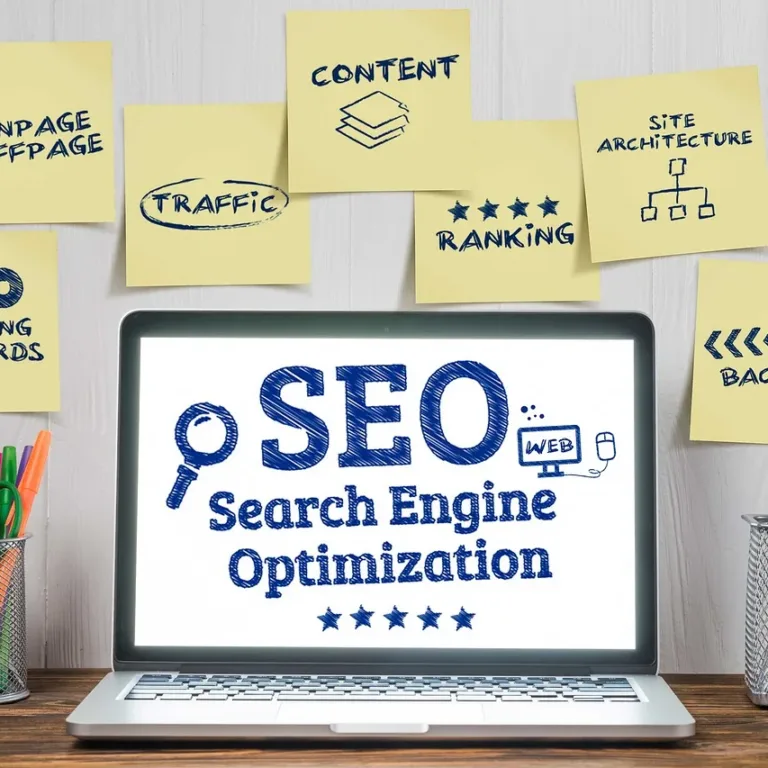There are a lot of small businesses out there looking to find new and improved techniques that will make their lives easier. One such thing is SEO, which stands for Search Engine Optimisation.
People might not know the importance that SEO has in providing rankings on Google when people search for services provided by you or your company. You may have been told you need SEO, but do you really know what that means? And more importantly, do you know how to get started?
Good SEO means that when people are searching for the service you provide, they will see your website as a possible choice and click on it. But if you don’t know how to do SEO well, you may end up with people not knowing about your business and choosing to go elsewhere.
It takes time, it takes patience and skill.
But don’t panic! I have provided you with some simple steps on how you can get started on your small business’s SEO journey TODAY!
So, let me explain how it all works!
What is SEO?
When you are a small business, it is important to constantly seek out new and improved techniques which will make your life easier. SEO (search engine optimisation) falls into this category for many reasons – one being that when people look up services offered by an organisation through Google or Bing they can find your website if it’s properly optimised with keywords from page titles down through meta descriptions.
Search engine optimisation (SEO) is not a new concept. In fact, SEO has been around for as long as the internet has existed!
When you optimise your website to be search engine friendly, you are telling Google that people will want to find your information on their search engine results pages (SERPs). This gives SEO an advantage over other types of marketing because it is much less expensive than traditional forms of marketing such as print or television ads. It’s also more effective because if someone does a local query on Google they are going to see your small business!
#winning

Here are some steps to help you start your small business on its SEO journey.
1. Before you Begin your Search Engine Optimisation (SEO) journey
Make sure you have created an account on Google My Business. Add a description of your business and upload photos. Get reviews from customers so people can see the great things they love about you! Make sure you link your Google My Business page to your website, and then the SEO fun really begins.

2. Know your keywords
Think about the words that visitors might be searching for when looking for your business or service on the internet. This sounds like a no-brainer, but it’s actually an often overlooked step in the process. When you’re writing content for your website or blog post think about what words people will be searching to find your business and use them in your content. “Words are everything!” isn’t just a saying; because once you know what they’re searching for these terms will help people find exactly who they want to see – you!
3. Get Domain authority by Flouting your Clout!
Get domain authority through quality backlinks. What does this mean? Well, when people link back to your site from other sites that have high domain authority you end up getting the same level of power. The more links and great content you produce for others in order to get a link back, the better off your website will be on search results pages.
4. Social Media is an awesome tool!
If done right, social media can help improve your small business’s SEO by building a large social media following. This will allow you to have more people sharing your content, which in turn means that Google and other search engines can find it easier!
5. A clear, concise, structure is key!
The structure of your website is important because it affects how Google ranks sites. For example, headings and descriptions are key for web crawlers to find content on a site more easily – which means they should be written in an interesting way so you don’t get lost among all those bland paragraphs!
6. Don’t stand still!
Quality and consistent content updates are essential to keeping your website relevant and interesting. Making your small business SEO-ready means updating the content on your website regularly and consistently. A new blog post, photos, video, or press release could be just what you need! Regular updates are needed to show search engines that your website has fresh and relevant information for its users.

7. It takes time to get results
SEO is a long-term investment and it’ll take time to see results, but its definitely worth the effort. Sometimes, when we run into challenges, we can start to question whether or not our efforts are worth continuing. But if your website has been sitting in the back of Google’s search pages for years with no improvements made to its ranking position, then it might be time to think about making some changes.
Whether you’re just getting started with your website or have been working on it for years, SEO takes time. It is a long-term process that requires patience and hard work. If you’ve been told your business needs SEO, but don’t know where to start or how to do it yourself, then contact me for a free 30-minute consultation for your small business.
Trish
Share via:

